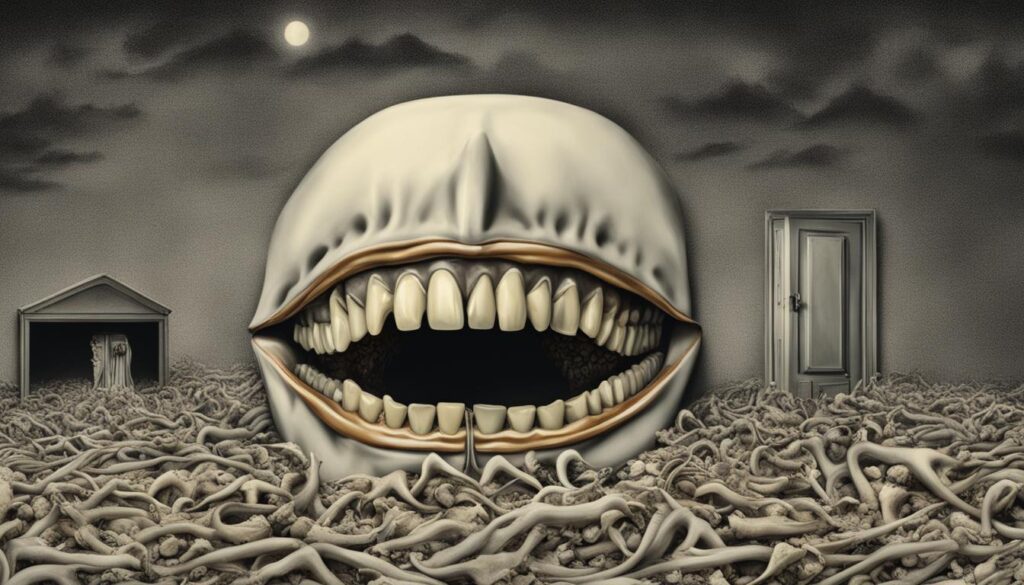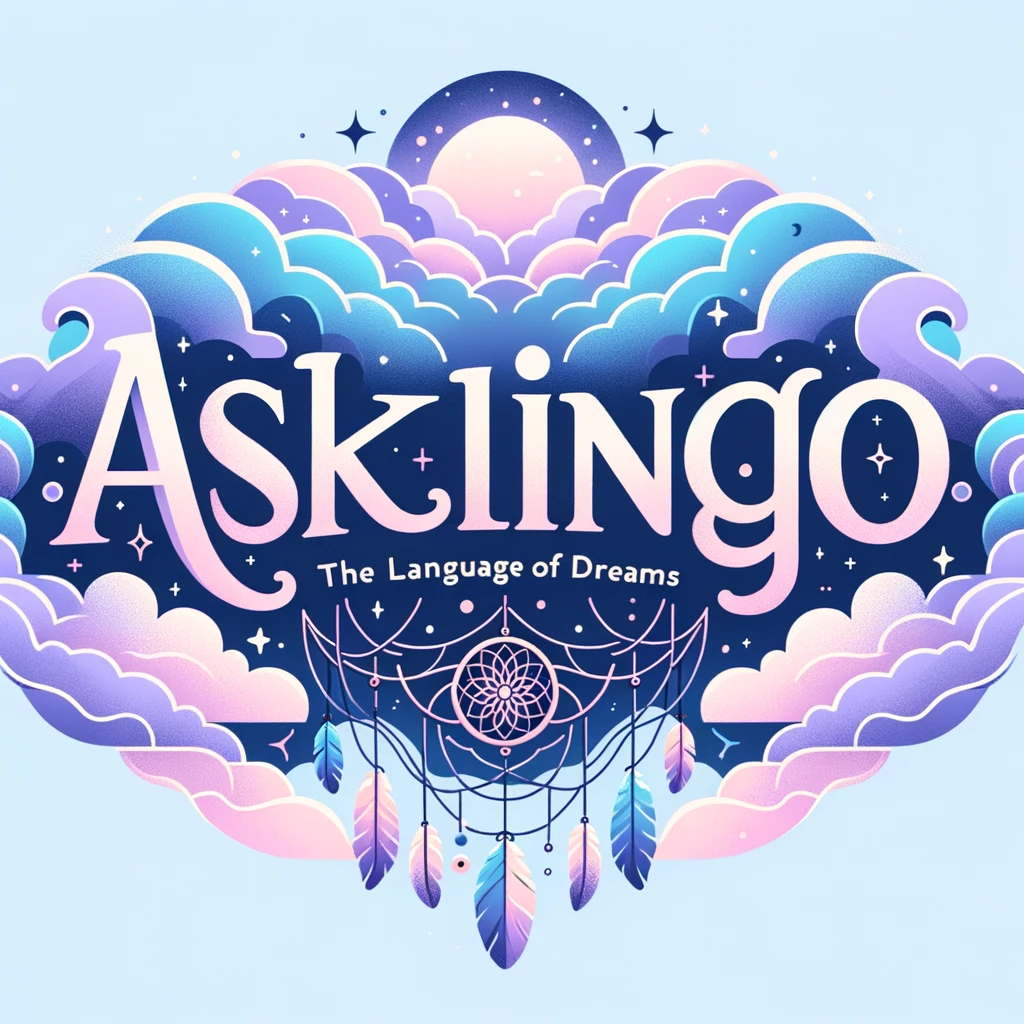Effective Methods for Recording and Analyzing Dreams
Dream journaling techniques offer valuable insights into the subconscious mind and help individuals gain a better understanding of their dreams. By recording and analyzing dreams, we can identify patterns, symbols, and recurring themes that provide us with a deeper understanding of ourselves. Dream journaling serves as a tool for self-reflection, self-discovery, and personal growth.
Key Takeaways:
- Dream journaling can provide valuable insights into the subconscious mind.
- Recording and analyzing dreams help identify patterns, symbols, and recurring themes.
- Dream journaling promotes self-reflection, self-discovery, and personal growth.
- It is a tool for gaining a better understanding of ourselves.
- Dream journaling techniques offer valuable insights into the subconscious mind and help individuals gain a better understanding of their dreams.
The Importance of Dream Analysis
Dream analysis plays a significant role in understanding the hidden messages and deeper meanings behind our dreams. While it may not have extensive scientific backing, dream analysis can provide valuable insights when practiced with the guidance of a psychotherapist. By examining the symbols, emotions, and narratives within our dreams, we can gain a better understanding of our subconscious mind and uncover aspects of ourselves that may be buried or overlooked in our waking life.
Through dream analysis, we can explore the personal significance of common dream symbols and themes. Each individual may have unique interpretations based on their own experiences and associations. By delving into the context and emotions surrounding these symbols, we can unravel their deeper meanings and how they relate to our thoughts, feelings, and experiences. Dream analysis can serve as a tool for self-awareness, facilitating personal growth, and providing insights into our innermost desires, fears, and unresolved issues.
It is important to note that dream analysis is subjective, and there is no one-size-fits-all approach. Each person’s dreams are unique to their own circumstances and experiences. Therefore, it is crucial to engage in dream analysis with an open mind and avoid overly rigid interpretations. Instead, we should focus on exploring the personal significance and understanding the messages that our dreams may be trying to convey to us.
Common Dream Symbols and Their Meanings
- Houses or rooms: Representing unexplored aspects of the self
- Dogs: Symbolizing a need for love or affection
- Teeth: Conveying aggression or control issues
- Guns: Relating to personal power or control
- Friends and family: Reflecting different aspects of one’s own personality
- Water: Representing emotions
- Driving: Symbolizing forward momentum
- Falls: Representing control challenges
Interpreting these symbols involves considering their context within the dream and the individual’s personal feelings and associations towards them. It is through careful analysis and introspection that we can begin to unravel the hidden meanings within our dreams and gain a deeper understanding of ourselves.
Different Approaches to Dream Interpretation
When it comes to understanding the meaning of dreams, there are various approaches that offer unique insights. Two popular methods of dream interpretation are Jungian dream analysis and Gestalt therapy. These approaches provide different perspectives on how to interpret the symbols and themes that appear in our dreams.
Jungian Dream Analysis
Jungian dream analysis, developed by renowned psychologist Carl Jung, focuses on the significance of individual symbols in dreams. According to Jung, symbols connect to our personal experiences, cultural backgrounds, and collective unconscious. In this approach, dreams are seen as a reflection of our unconscious mind and can offer insights into our personal growth, unresolved issues, and hidden desires. Jungian dream analysis places emphasis on the personal associations and interpretations of the dreamer, allowing for a subjective understanding of the dream’s meaning.
Gestalt Therapy
Gestalt therapy takes a slightly different approach to dream interpretation. Instead of focusing solely on individual symbols, Gestalt therapists view dreams as a whole, integrating the various elements and parts within the dream. According to Gestalt theory, each part of the dream represents different aspects of the dreamer’s personality. By exploring these parts and understanding their interactions, individuals can gain insights into unresolved conflicts, unfinished business, and patterns of behavior. Gestalt therapy encourages individuals to engage with the dream as if it were happening in the present moment, allowing for a deeper exploration of emotions and experiences.
Both Jungian dream analysis and Gestalt therapy offer valuable tools for understanding the meaning behind our dreams. Whether we choose to focus on individual symbols or explore the dream as a whole, the interpretations we derive can provide us with valuable insights into our subconscious mind and help us on our path of self-discovery.
Mental Health and Dreams: Exploring the Potential Connection
When it comes to understanding our mental health, the realm of dreams may hold some valuable insights. Dreams have long been recognized as a window into our subconscious mind, offering a glimpse into our deepest thoughts and emotions. But could there be a deeper connection between dreaming and our mental well-being? Current research suggests that there may indeed be a link.
One aspect of dream analysis that has garnered attention is the emotional processing that occurs during dreaming. Dreams provide a unique opportunity for us to process and make sense of our emotions from the day. Just like how we process our thoughts and feelings while awake, dreams act as a sort of emotional reset, giving us a chance to work through unresolved emotions and prepare for the challenges of the waking world.
Emotional Processing in Dreams
Research has shown that the emotional content of our dreams often mirrors our emotional state while awake. For example, experiencing heightened anxiety or stress may lead to more negative dream affect, while feelings of peace and happiness can result in pleasant dream experiences. This suggests that dreams may serve as markers of our mental well-being, reflecting both our conscious and unconscious emotional states.
While the connection between dreams and mental health continues to be explored, it is clear that dreams play a role in emotional processing. By paying attention to our dreams and reflecting on the emotions they evoke, we can gain a deeper understanding of our mental well-being and potentially uncover valuable insights into our subconscious mind.

Dream Symbols: Unlocking the Hidden Meanings
When it comes to analyzing dreams, understanding the symbolism behind them is key. Dreams often contain common symbols that can hold personal significance and provide valuable insights into our subconscious minds. Interpreting these symbols involves delving into their role within the dream and considering our emotions and associations to them.
Let’s explore some of the most common dream symbols and their meanings:
Houses or Rooms:
These symbols often represent unexplored aspects of the self, hidden emotions, or areas of our lives that require attention.
Dogs:
Dreams featuring dogs can symbolize a need for love, companionship, or loyalty. They may also indicate our own protective instincts or a desire for affection.
Teeth:
Teeth falling out or decaying in dreams often convey feelings of insecurity, powerlessness, or a fear of aging. They may also be related to issues of control or aggression.
Guns:
Guns in dreams can symbolize personal power, control, or a need for protection. They may represent a desire to assert oneself or defend against perceived threats.
Friends and Family:
Symbols of friends and family members appearing in dreams reflect different aspects of our own personality. They can represent qualities we admire, conflicts we may be facing, or unresolved issues within relationships.
Water:
Water often represents emotions in dreams. Calm, clear water may indicate a sense of tranquility, while turbulent or murky water can symbolize emotional turmoil or unresolved feelings.
Driving:
Dreams involving driving can symbolize our sense of direction, control over life’s path, or progress toward our goals. They may highlight our desire for independence or the need to navigate challenges.
Falls:
Experiencing falls in dreams may represent a fear of losing control, being overwhelmed, or facing failure. They can signify the need to regain balance or find stability in life.
Remember, the interpretation of dream symbols is highly personal and can be influenced by our own experiences, emotions, and cultural background. It is essential to consider the context of the dream and the feelings associated with these symbols to unlock their true meaning.
“Dreams are the royal road to the unconscious.” – Sigmund Freud
Tips for Analyzing and Interpreting Your Dreams
Interpreting dreams can be a fascinating and enlightening experience. By analyzing the symbols, emotions, and patterns within your dreams, you can gain valuable insights into your subconscious mind. Here are some tips to help you effectively analyze and interpret your dreams.
Develop a consistent dream recall practice
To begin analyzing your dreams, it is important to develop a consistent dream recall practice. Make it a habit to recall your dreams as soon as you wake up. Keep a dream diary by your bed and record the details of your dreams, including the date, time, emotions, and sensory experiences. This will help you remember more details and create a comprehensive record of your dreams.
Consider the context and personal significance of symbols and emotions
When analyzing your dreams, it is essential to consider the context and personal significance of the symbols and emotions present. Pay attention to the actions of symbols within the dream, their appearance, location, and your personal feelings towards them. Reflect on your first associations that come to mind when thinking about these symbols. This will help you uncover the hidden meaning and messages within your dreams.
Use dream journal prompts for reflection and analysis
Dream journal prompts can be a useful tool for stimulating reflection and analysis of your dreams. These prompts are designed to guide your exploration of the symbols, emotions, and themes within your dreams. Some examples of dream journal prompts include, “What emotions did I feel in the dream?”, “Were there any recurring symbols?”, and “How did the dream make me feel upon waking up?”. By answering these prompts, you can delve deeper into the meaning of your dreams.
By following these tips and practicing regular dream analysis, you can uncover the hidden messages and insights within your dreams. Remember that dream interpretation is a personal and subjective process, so trust your intuition and unique understanding of your dreams.

The Benefits of Keeping a Dream Journal
Keeping a dream journal offers numerous benefits for individuals seeking personal growth, self-reflection, and a better understanding of their subconscious mind. By recording and analyzing dreams, you can unlock valuable insights and gain a deeper understanding of your thoughts, emotions, and patterns. Dream journaling enhances dream recall, allowing you to remember more details and experiences from your dreams, which can lead to a greater understanding of your subconscious thoughts and emotions.
A dream journal serves as a tool for self-reflection and self-discovery. By documenting your dreams, you can identify recurring patterns and themes that may reveal underlying issues or desires in your waking life. It provides a safe space to explore and process emotions, as dreams often provide an opportunity for emotional release and exploration. Moreover, keeping a dream journal can stimulate creativity and serve as a source of inspiration for various creative endeavors.
When you keep a dream journal, you are creating a personalized record of your subconscious mind. It allows you to visually track your dream patterns over time and gain insights into your personal growth and development. By analyzing and interpreting your dreams, you can uncover hidden symbolism and meaning that may provide guidance and clarity in your waking life. Dream journaling is a powerful tool for self-awareness that can lead to personal transformation and a deeper understanding of yourself.
Key Benefits of Keeping a Dream Journal:
- Improved dream recall and memory of dream experiences.
- Enhanced self-reflection and self-discovery.
- Identification of recurring patterns and themes.
- Aid in processing and exploring emotions.
- Inspiration for creative endeavors.
- Personalized record of subconscious mind.
- Guidance and clarity in waking life.
- Opportunity for personal growth and transformation.
Differentiating a Dream Journal from a Regular Journal

Dream journaling is a unique practice that sets it apart from a regular journal. While both serve as platforms for self-reflection and introspection, a dream journal is solely dedicated to recording and analyzing dreams. Its format and focus differ significantly from a regular journal, allowing individuals to delve into the depths of their subconscious mind and explore the hidden meanings behind their dreams.
A dream journal follows a specific format designed to capture essential details that may contribute to dream analysis. When recording a dream, it is important to note the date, time, emotions experienced during the dream, and sensory details that stood out. This level of detail ensures that the dream is captured accurately and helps facilitate a more comprehensive interpretation later on.
Unlike a regular journal, which can be written in regularly, dream journal entries are made only when vivid or memorable dreams occur. This selective approach allows individuals to focus their energy on dreams that have a significant impact on their subconscious mind. By distinguishing between regular life experiences and dream experiences, dream journaling creates a space for deeper exploration and understanding of the dream realm.
In summary, a dream journal is a specialized diary that enables individuals to document and analyze their dreams. Its unique format and focused approach differentiate it from a regular journal, allowing for a more thorough exploration of the subconscious mind. By devoting attention to dreams and their symbolism, dream journaling offers a distinct and valuable tool for self-discovery and personal growth.
Theories on Dream Significance
When it comes to understanding the significance of dreams, there are several theories that offer different perspectives. These theories aim to explain the underlying meaning and purpose behind our dreams, shedding light on the mysterious realm of the subconscious mind. Let’s explore some of the most prominent theories of dream significance.
Psychoanalytic Theory
Pioneered by Sigmund Freud, psychoanalytic theory suggests that dreams are a reflection of our unconscious desires, fears, and repressed thoughts. According to Freud, dream symbols represent hidden meanings and repressed emotions, revealing insights into our deepest desires and conflicts. By analyzing these symbols and uncovering their hidden messages, we can gain a better understanding of ourselves.
Archetypal Theory
Developed by Carl Jung, archetypal theory proposes that dreams contain universal symbols that represent collective human experiences. Jung believed that these symbols, such as the mother, the hero, or the trickster, stem from our shared cultural and evolutionary history. By exploring these archetypes in our dreams, we can tap into a collective wisdom that transcends individual experiences.
Cognitive Theory
Cognitive theory views dreams as a product of our cognitive processes, such as problem-solving, memory consolidation, and emotional regulation. According to this theory, dreams serve a functional purpose, helping us process and integrate information from our waking experiences. By analyzing the content and structure of our dreams, we can gain insights into our cognitive functioning and emotional well-being.
Cultural Theory
Cultural theory suggests that dream symbols are influenced by cultural factors, including language, customs, and beliefs. Dreams can reflect cultural norms, values, and collective experiences, providing a glimpse into the cultural influences shaping our thoughts and emotions. By examining the cultural context of our dreams, we can gain a deeper understanding of our cultural identity and the impact it has on our subconscious mind.
Activation-Synthesis Theory
The activation-synthesis theory, proposed by Allan Hobson and Robert McCarley, suggests that dreams are the result of the brain’s attempt to make sense of random neural activity during sleep. According to this theory, dreams are a product of the brain’s spontaneous firing of neurons, which the mind then interprets and weaves into a narrative. By analyzing the patterns and narratives within our dreams, we can gain insights into the brain’s activity and its influence on our dream experiences.
While each theory offers a unique perspective on the significance of dreams, it is important to remember that dream interpretation is highly subjective and varies from person to person. Exploring these theories can provide valuable insights into the complexity of our dreams and the rich tapestry of our subconscious mind.
Common Dreams and Their Meanings

Many people experience common dream topics that can hold personal significance and offer insights into their subconscious thoughts and emotions. One of the most common dreams is about teeth falling out. This dream often signifies stress, anxiety, or a fear of losing control. It can also represent concerns about appearance, communication, or self-image. It is essential to consider the emotions and context surrounding this dream to interpret its meaning accurately.
Dreams about sex are another frequent topic that can have various interpretations. Such dreams may indicate unfulfilled desires, issues in relationships, or a reflection of one’s sexuality. It is important to note that dreams about sex do not always have a literal meaning but can symbolize a need for intimacy, connection, or personal expression.
Dreams about natural disasters, including earthquakes, floods, or tornadoes, can evoke powerful emotions and may be associated with traumatic experiences or fear of the unknown. These dreams can signify a need for change or a feeling of being overwhelmed by life circumstances. Exploring the emotions and symbols within the dream can provide valuable insights into personal fears or challenges.
Lastly, dreams about falling are common and can symbolize a sense of losing control, insecurity, or fear of failure. These dreams often reflect a lack of stability or confidence in a particular area of life, such as career, relationships, or personal goals. Understanding the emotions and circumstances surrounding this dream can help identify areas of life that require attention or a reassessment of goals.
Dream Interpretation and Mental Health
Understanding the connection between dreams and mental health can provide valuable insights into our overall well-being. While ongoing research delves into this relationship, evidence suggests that dreams can serve as markers of our emotional state and mental well-being. The experiences we have before falling asleep can influence the quality of our dreams, with a sense of peace often resulting in more pleasant dream experiences. Conversely, feelings of anxiety or stress may manifest as negative dream affect.
One possible explanation for this connection is that dreams help us process and manage emotions. They provide a space for emotional release and exploration, allowing us to confront and understand our feelings on a deeper level. By examining the emotions and themes present in our dreams, we can gain valuable insights into our subconscious thoughts and emotions, aiding in personal growth and self-awareness.
It is worth noting that the relationship between dream interpretation and mental health is still being explored. Researchers are investigating the role of sleep quality, the REM cycle, and other factors in our mental well-being. While the exact mechanisms underlying this connection are not yet fully understood, further research can shed light on the implications of dream analysis on our overall mental health.
The Potential Benefits
- Self-reflection and self-awareness: Dream interpretation allows us to delve into the depths of our subconscious mind and gain a better understanding of ourselves.
- Emotional processing: Dreams provide a safe space for emotional release, exploration, and the processing of complex emotions.
- Personal growth: By analyzing our dreams, we can identify patterns, symbols, and themes that can guide us towards personal growth and development.
- Managing mental well-being: Dreams can serve as indicators of our mental well-being, allowing us to address any potential issues and take steps towards improving our overall mental health.
Tips for Effective Dream Interpretation
When it comes to interpreting dreams, there are a few tips that can help you navigate the realm of the subconscious mind. Firstly, make it a daily practice to recall your dreams. Upon waking up, take a few moments to reflect on the details and emotions you experienced during the night. By consistently engaging in this process, you will improve your dream recall abilities and gain more insight into your inner world.
Another helpful technique is to keep a detailed dream diary. Write down your dreams as soon as possible, capturing the key elements, symbols, and emotions. As you read and reflect on these entries over time, patterns and connections may emerge, providing you with a deeper understanding of your dreams and their significance.
Seeking professional guidance can also be beneficial in dream interpretation. A psychotherapist or dream analyst can offer valuable insights and alternative perspectives that may illuminate hidden meanings within your dreams. Their expertise can help you explore the symbolism and themes present in your dreams, guiding you towards a more profound self-understanding.
It is important to remember that dream interpretation is highly subjective and personal. What a symbol or theme means to one person may be entirely different for another. Therefore, approach dream analysis with an open mind and trust your own intuition. With practice, patience, and an exploratory mindset, you can unlock the hidden messages within your dreams and embark on a journey of self-discovery.







